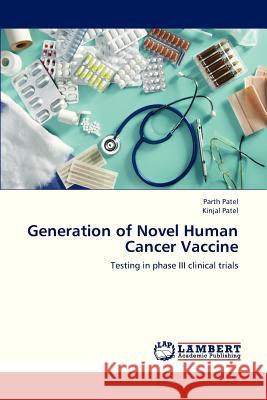Generation of Novel Human Cancer Vaccine » książka
Generation of Novel Human Cancer Vaccine
ISBN-13: 9783659332630 / Angielski / Miękka / 2013 / 96 str.
Discovery of a potential anticancer therapy is still a challenge to the scientists. Though many different kinds of therapies are developed none of them has lived up to the task to cure cancer completely. Cancer vaccines are found to be the latest discovery in the field of cancer. Although there are number of vaccines undergoing preclinical & clinical trials which are promising to be an effective anticancer therapy. Novel vaccines produce specific immune responses and objective clinical responses with minimal toxicity in phase I/II trials. Advances in gene transfer technology, tumor immunology and better methods of monitoring specific anti tumor immune responses allow the hope that tumor vaccines will be introduced into the clinic, at least in some malignancies resistant to systemic therapy so far such as melanoma and renal cell carcinoma. This book is based on generation of human cancer vaccines that has been tested in phase III clinical trials and shows mechanisms that could contribute to these limited clinical responses, and highlights the challenges faced for development of future vaccines.
Discovery of a potential anticancer therapy is still a challenge to the scientists. Though many different kinds of therapies are developed none of them has lived up to the task to cure cancer completely. Cancer vaccines are found to be the latest discovery in the field of cancer. Although there are number of vaccines undergoing preclinical & clinical trials which are promising to be an effective anticancer therapy. Novel vaccines produce specific immune responses and objective clinical responses with minimal toxicity in phase I/II trials. Advances in gene transfer technology, tumor immunology and better methods of monitoring specific anti tumor immune responses allow the hope that tumor vaccines will be introduced into the clinic, at least in some malignancies resistant to systemic therapy so far such as melanoma and renal cell carcinoma. This book is based on generation of human cancer vaccines that has been tested in phase III clinical trials and shows mechanisms that could contribute to these limited clinical responses, and highlights the challenges faced for development of future vaccines.











